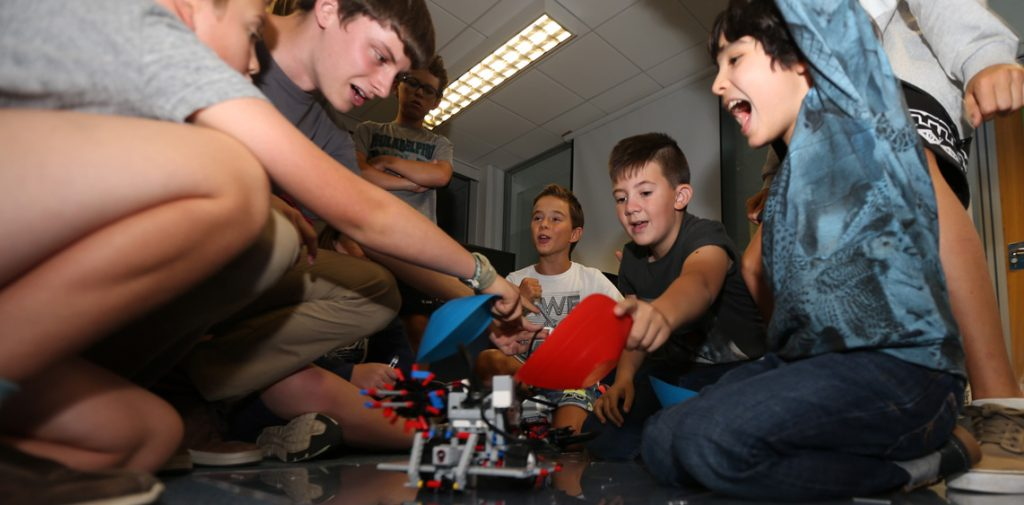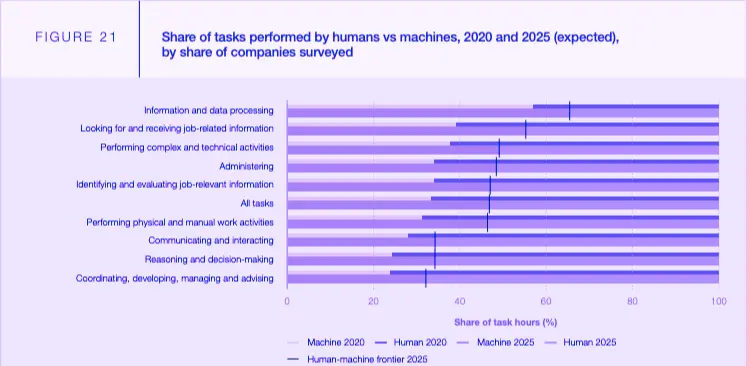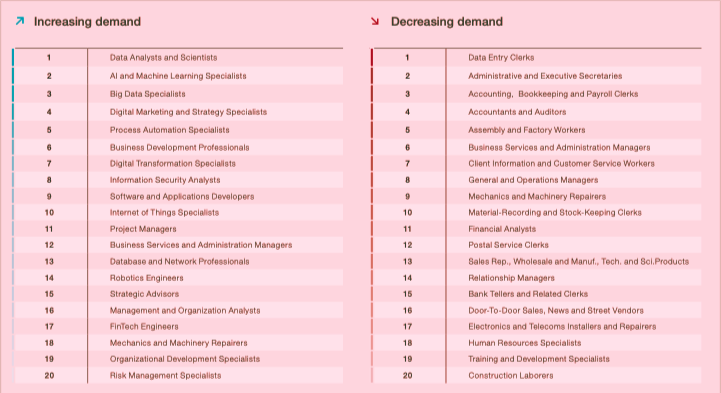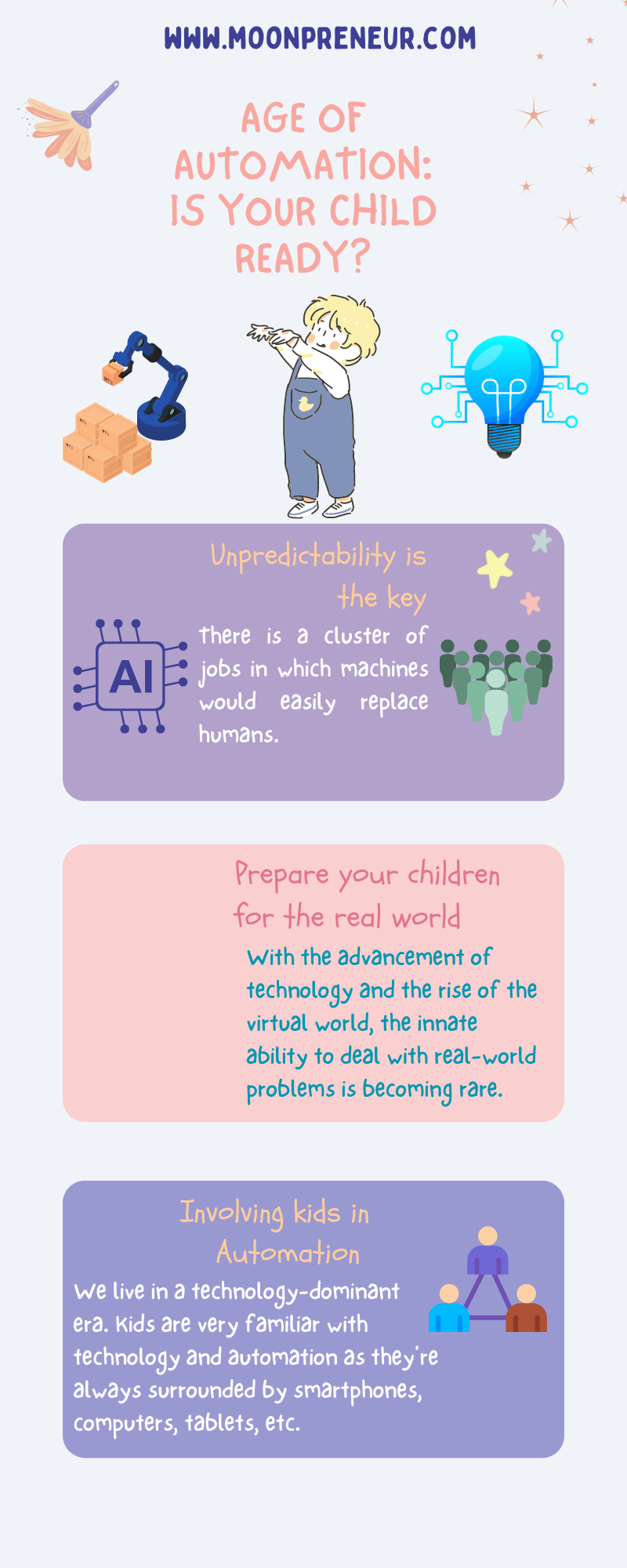
Automation is no longer just a problem for those working in manufacturing. Physical labor was replaced by robots; mental labor is going to be replaced by AI and software.
-Andrew Yang
 Work gives us a sense of self-worth. For hundreds of years, surnames of people were carved out of their profession. If we take a glance back towards England, Smith was used for blacksmiths, Miller was used for grain mill operators, and Weaver was used for clothes makers. Children inherited the tradition and carried forward the family tradition.
Work gives us a sense of self-worth. For hundreds of years, surnames of people were carved out of their profession. If we take a glance back towards England, Smith was used for blacksmiths, Miller was used for grain mill operators, and Weaver was used for clothes makers. Children inherited the tradition and carried forward the family tradition.
Now, we no longer take our surnames from our work but what remains essential to our identity is the work that we do. It is this very identity that’s been put into danger with the rise of Automation. People are not just afraid of losing jobs and wages, but also their sense of purpose.
According to the World Economic Forum’s 2020 Future of Jobs Report:
• 85 million people will be replaced by machines or algorithms by 2025
• By 2025, humans and machines will do the same amount of work
• 83% of businesses plan to accelerate their pace of automation
Companies are starting to move a great share of work from humans to machines:
1. Unpredictability is the key
There is a cluster of jobs in which machines would easily replace humans. However, one factor where machines struggle and humans surpass them is the involvement of unpredictability.
The jobs that present a lot of unpredictable elements, unfamiliar conditions, and complex and ambiguous data–humans will always remain a step of the robots or the machines. Therefore, the best way to survive the age of automation for children is to get familiar with unpredictability.
2. Prepare your children for the real world
With the advancement of technology and the rise of the virtual world, the innate ability to deal with real-world problems is becoming rare.
Apart from learning technical skills, if you want your children to be future-ready and boost their chances of employment, you have to make sure that they spend a lot of time away from their gadgets and find themselves in unfamiliar, messy, and real-world circumstances of life.
There is a great need to experience the physical and real world around us and eliminate the digital filter. As Artificial Intelligence makes its way into our experiences of the physical world, it determines how we learn and interact. What this does is reduce our skill level to deal with things that provide no data for AI to use.
Virtual experiences come with constraints and limits. After a point, people have to go out into the physical world and have real, in-person connections. This natural ability isn’t something that AI is going to beat us at.
3. Involving kids in Automation
We live in a technology-dominant era. Kids are very familiar with technology and automation as they’re always surrounded by smartphones, computers, tablets, etc. Kids exposed to technology in their early years will have a better go at working with it in the coming future.
Parents and responsible caretakers need to help kids identify their interests in STEM and cultivate them. This is the way to create leaders and entrepreneurs of tomorrow.
You can prepare your child for the future by taking the following steps:
🔺Introduce kids to Robotics
Teaching robotics at a young age is a great way to inculcate crucial life skills. If you see your child interested in the STEM field, then what’s essential is to move them forward in robotics.
Learning robotics can help develop:
• Creative thinking
• Persistence
• Problem-solving
• Technical thinking
Learning robotics will open up employment opportunities for kids and help them in school, college, and careers.
🔺School programs
Indulge your kids in school programs that offer a STEM curriculum. This is a great way to make your kid future-ready while having them involved in the community. Children who are involved in extracurricular and after-school activities tend to have better academic performance, better social skills, and disciplined classroom behavior.
Learning robotics will open up employment opportunities for kids and help them in school, college, and careers.
Learning alongside their peers makes it easy for them to develop a passion and move towards a bright future.
🔺Summer camps
The ideal way to keep your kids indulged in their time away from school. Send your child to a STEM learning camp.
One such great virtual summer camp is Moonpreneur’s MoonCamp.
MoonCamp is a virtual camp for tech-enthusiastic kids aged 9-17. The Camp includes a combination of technical skills, an entrepreneurial mindset, and soft skills. Children can choose between robotics, home automation, and future tech, get hands-on learning kits, and get knowledge on business and eCommerce via gamification.
🔺Encourage kids in STEM
STEM learning provides opportunities to learn coding, robotics, app development, game development, and automation, all while having fun.
We can prepare our children for the automated future by encouraging them towards STEM learning. These skills are only going to increase in value and demand and getting kids indulged in them today ensures a better tomorrow.
Final thoughts
The nature of the “jobs of the future” will see a massive change. The revolution is taking place now as we speak and it is important for us to prepare our children for what’s coming ahead. Automation is the future and it makes life more convenient.
The question is, before experiencing the glaring threat of getting replaced in the future, do we want to pose a tough challenge?
Moonpreneur’s Innovator Program instills an entrepreneurial and innovative mindset that will be critical for the future of work.
Moonpreneur is on a mission to disrupt traditional education and future-proof the next generation with holistic learning solutions. Its Innovator Program is building tomorrow’s workforce by training students in AI/ML, Robotics, Coding, IoT, and Apps, enabling entrepreneurship through experiential learning.

































Are there other skills important besides STEM?
Absolutely! Communication, collaboration, and adaptability will also be crucial in the future workplace. Encourage teamwork, communication, and a growth mindset in your child.